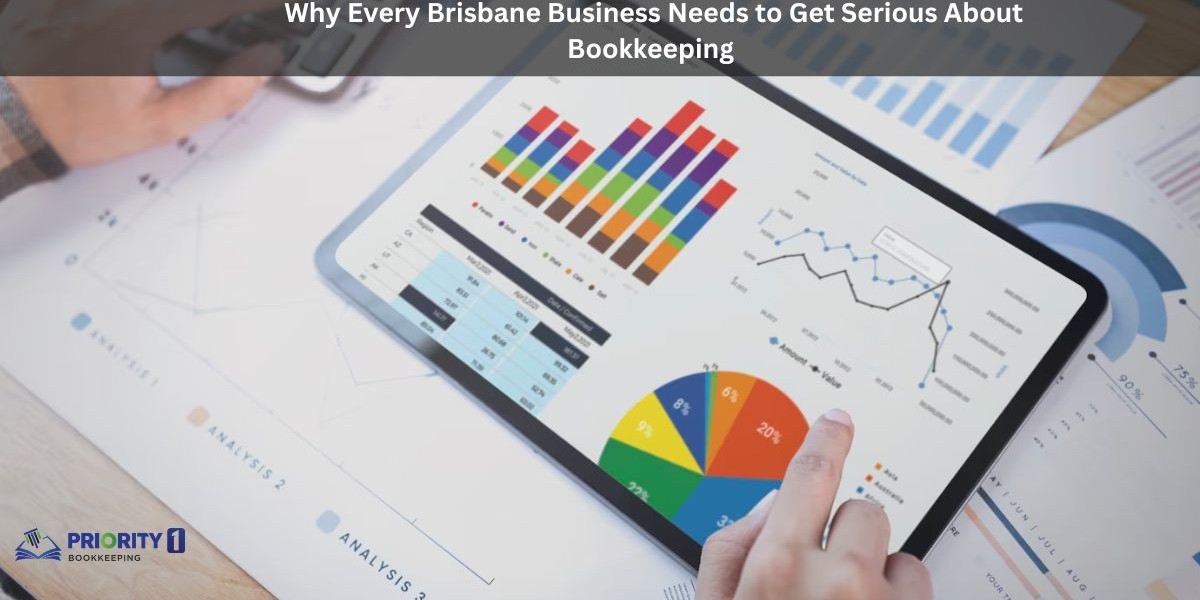Running a business is tough enough without having to constantly stress about finances. From cash flow to tax time, keeping your books in order isn’t just good practice—it’s a must if you want to stay compliant, make smart decisions, and actually grow.
Bookkeeping might seem like a behind-the-scenes task, but it directly impacts everything from your day-to-day operations to your long-term strategy. So, let’s break down what bookkeeping really is, why it matters, and how Brisbane businesses can stay ahead of the game.
What is Bookkeeping and Why Does It Matter?
Bookkeeping is the process of recording and organizing a business's financial transactions. This includes tracking income and expenses, managing invoices, reconciling bank accounts, and preparing reports for tax and compliance purposes.
Why it's crucial:
It helps you understand your financial health
Keeps you compliant with the ATO
Makes tax time faster and less stressful
Supports budgeting and business planning
When done consistently and accurately, bookkeeping can be the backbone of your business success.
The Key Benefits of Professional Bookkeeping
Sure, you could try to manage it all yourself—but let’s be real. Between running operations, dealing with customers, and managing staff, bookkeeping usually falls to the bottom of the list… until it becomes a problem.
Here’s what a professional bookkeeper brings to the table:
Accuracy: Avoid costly errors and late payments
Time-Saving: Focus on running your business, not spreadsheets
Expertise: Stay compliant and take advantage of tax-saving opportunities
Real-Time Reporting: Make faster, data-driven decisions
Investing in expert help is about peace of mind and smarter business.
Choosing the Right Bookkeeping Support
If you’re looking to hire, don’t just go with the first Google result. The right fit depends on your industry, business size, and how hands-on you want to be.
What to Look for in a Bookkeeper
A good bookkeeper Brisbane should offer:
Proven experience in your business sector
Familiarity with leading software like Xero, MYOB, or QuickBooks
Transparent pricing
Good communication and reporting habits
It’s also important to ask about compliance knowledge, especially with BAS, GST, and payroll.
Local Expertise: Why Brisbane Businesses Have Unique Needs
While the basics of bookkeeping are the same across Australia, Brisbane-based businesses often face region-specific challenges—especially in industries like construction, retail, hospitality, and allied health.
For example:
Payroll laws can vary slightly due to regional awards
Seasonal cash flow fluctuations (especially in hospitality)
Local tax incentives or grants
That’s where tailored bookkeeping services in Brisbane can be a lifesaver. Working with a provider who understands the local landscape can streamline your reporting and keep you on top of changing compliance rules.
Going Beyond Basic Bookkeeping
Modern bookkeeping isn’t just data entry—it’s strategic. With cloud software and automated tools, your bookkeeper can now deliver real-time insights to help you:
Track cash flow
Manage budgets
Forecast revenue
Identify opportunities for savings
H3: Cloud-Based Tools That Make Life Easier
Tools like Xero, QuickBooks Online, and MYOB Essentials allow you to:
Link bank accounts for auto-reconciliation
Generate live financial reports
Send and receive invoices on the go
When combined with reliable bookkeeping services Brisbane, these tools can completely transform how you manage your money.
The Power of Outsourcing Bookkeeping
Handling your books in-house might seem cost-effective, but it often leads to more work, more stress, and more risk. That’s why outsourcing bookkeeping services has become so popular—especially for small to mid-sized businesses.
Here’s why it’s worth considering:
Scalability: Your service can grow as your business does
Expertise on Demand: Access a team of trained professionals without hiring full-time staff
Cost-Effective: Pay only for what you need—no employee overheads
Consistency: Your books are maintained regularly, not just at tax time
Outsourcing also gives you access to the latest tools and processes without needing to manage them yourself.
How to Transition Smoothly
Thinking of outsourcing or switching providers? It doesn’t have to be painful.
Here’s how to make the transition seamless:
Gather Existing Financial Data: This includes previous reports, invoices, receipts, and bank statements.
Choose a Provider You Trust: Look for transparency, testimonials, and industry know-how.
Set Clear Expectations: Outline what’s included, how often you'll receive updates, and how reporting works.
Stay Involved: Even when outsourcing, stay informed and review your reports regularly.
Communication is key. A good bookkeeper will keep you in the loop and help you feel confident—not confused.
Bookkeeping as a Strategic Asset
The most successful business owners treat bookkeeping as a strategic tool, not just an admin task.
With clean, up-to-date books, you can:
Secure funding or investment
Improve your credit rating
Make confident decisions about hiring, pricing, and growth
Prepare for tax season without scrambling
It's about setting your business up for long-term success.
Real Talk: When to Get Professional Help
If any of these sound familiar, it's time to get help:
You’re behind on BAS lodgements
You avoid looking at your bank balance
Your receipts are stuffed in a shoebox (we’ve all been there)
You spend more time fixing mistakes than running your business
Don’t wait for a financial emergency to get support. The right bookkeeper will make your life easier, your business more profitable, and your stress levels a whole lot lower.
Wrapping It Up: Let the Pros Handle It
Managing your books shouldn’t be a second job—it should be a system that supports your growth. Whether you’re running a café, freelancing, or managing a growing team, accurate and efficient bookkeeping gives you the clarity to lead with confidence.









